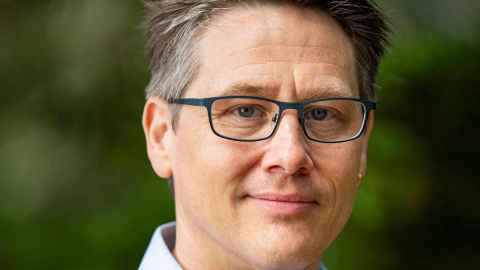The connected cycles of water on earth and integrative climate science
4 August 2020
The natural sciences allowing us to understand the environment are at the heart of developing strategies to adapt to, survive, and thrive as the climate changes.

In a free public lecture Professor David Noone of the Department of Physics will talk about how water is at the heart of many of the most complex problems in the climate sciences: understanding the behaviour of clouds in a warmer world, how land ecosystems mediate evolving rainfall patterns, and when weather patterns trigger decline of the polar ice sheets.
The behaviour of these macrophysical problems can be interrogated by knowing the details of the microscopic properties of water: small variations in the abundance of naturally occurring heavy oxygen and hydrogen isotopes in water. Utilizing the stable isotope chemistry requires integrating many scientific disciplines and linking disparate areas of theoretical, observational and modeling techniques.
Professor Noone will give examples of the coupling of carbon and water cycles in forests, and in the interaction of forest fire and clouds. He will discuss the importance of the sciences which form the kernel that enable evidence-based decision making, and the opportunities for leveraging physical sciences to empower communities to shape their responses to climate change.
He is a natural scientist whose specialty is on understanding relationships between water, clouds and changing global wind patterns. He is most well-known for his work blending isotope ratios in the atmosphere and on the landscape with more traditional atmospheric science, in both modelling and observational contexts. He helps build and use climate models that are used to predict future climate change. He has served as a member of several NASA science teams including earth observing spacecraft and aircraft missions designed to measure the composition of the atmosphere.
Professor Noone's research takes him and his students around the world to investigate climate change: from the rainstorms over lush forests of New Guinea, equatorial oases of the Galapagos, mountain tops in Hawaii and the endless ice fields of Greenland. He delights in teaching weather and climate in the classroom and, on his field classes, observing climate.
This free public lecture will be held on Tuesday 11 August at 6.30m in Physics Lecture Theatre 1, ground floor of Building 303 at 36-38 Princes St Auckland. All welcome.
Media contact
Anne Beston | Media advisor
DDI 09 923 3258
Mob 021 970 089
Email a.beston@auckland.ac.nz